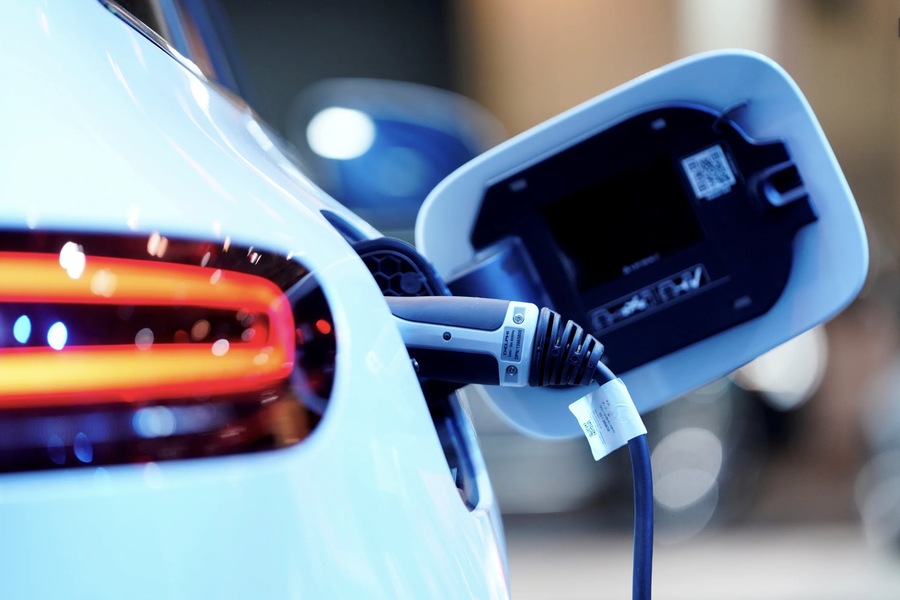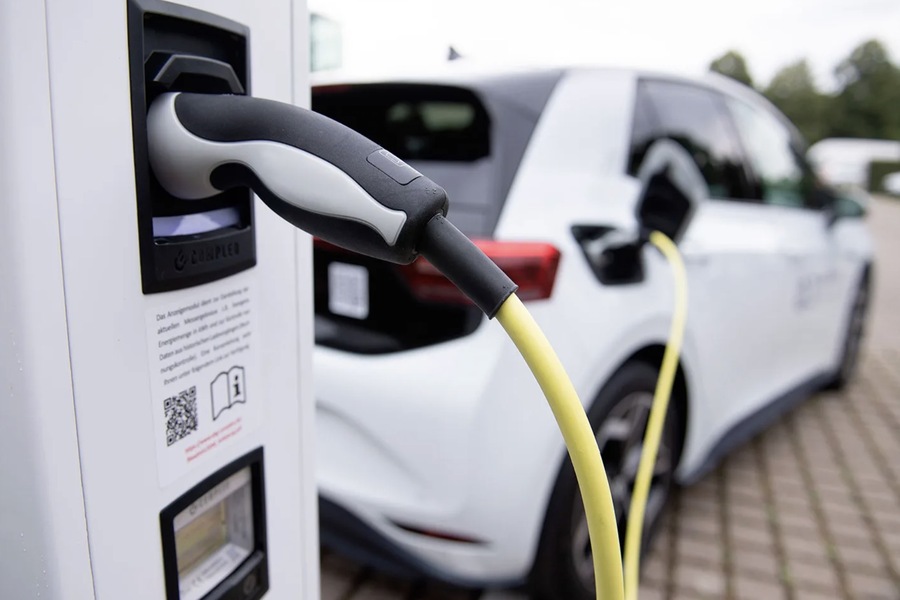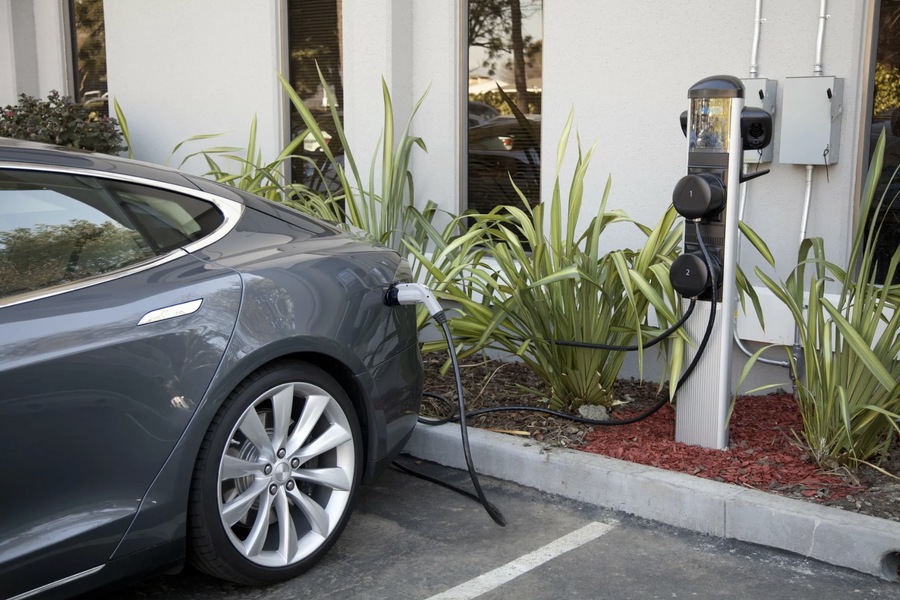Dubai’s hot desert climate presents unique challenges for many industries, including the growing sector of electric car rentals. Electric vehicles (EVs) are increasingly being adopted for their eco-friendly benefits, and Dubai’s support for sustainable transportation has contributed to the rise of electric car rentals. However, operating electric vehicles in Dubai’s extreme temperatures, particularly in the summer, affects their performance and overall usability. In this article, we will explore how Dubai’s climate impacts the performance of electric cars, and what this means for consumers and businesses offering electric car rentals.
Impact of Heat on Electric Vehicle Batteries
Electric vehicle batteries are highly sensitive to temperature fluctuations, and the high temperatures common in Dubai can significantly affect battery efficiency and longevity. Batteries in electric cars operate most efficiently within a specific temperature range. When temperatures exceed this range, as they often do in Dubai, the battery’s ability to hold and discharge power can diminish.
This results in a reduction of the overall driving range per charge. According to data from the U.S. Department of Energy, extremely hot temperatures can reduce an EV’s range by up to 17%. In Dubai, where summer temperatures often exceed 40°C (104°F), this reduction in range becomes a critical factor for users of electric car rentals, particularly those planning long drives.
Air Conditioning Demand and Energy Consumption
Another significant factor influenced by Dubai’s climate is the increased reliance on air conditioning, which directly impacts the energy consumption of electric vehicles. In electric cars, the energy required for air conditioning is drawn from the battery, meaning more frequent use of the air conditioning system directly reduces the vehicle’s driving range. In Dubai’s scorching summer months, where temperatures can reach as high as 50°C (122°F), air conditioning becomes essential for comfort and even safety.
For electric car rental users, this means that more energy is consumed to maintain cabin comfort, further limiting the range per charge. Consumers should consider this when renting electric cars in Dubai, as shorter trips with frequent recharges may be necessary during the hotter months.

Charging Infrastructure and Heat Resistance
Dubai has invested heavily in EV charging infrastructure, with the goal of supporting the city’s transition to sustainable transport. As of 2024, Dubai has installed over 325 public EV charging stations across the emirate, with plans for further expansion. However, the high temperatures in Dubai present challenges for the efficiency of charging stations and their integration into the urban landscape.
Charging stations and the batteries themselves need to be able to withstand the intense heat without degrading performance. Extreme heat can slow down the charging process or, in worst-case scenarios, cause temporary malfunctions. This adds to the time drivers spend at charging points, making electric car rentals potentially less convenient during peak summer months. To mitigate these effects, some charging stations in Dubai are now designed with cooling mechanisms or are located in shaded areas to ensure more consistent performance.
Effects on Electric Motor Efficiency
In addition to battery degradation, the electric motors used in EVs can also be affected by high temperatures. Although electric motors are generally more efficient than internal combustion engines, they are still vulnerable to overheating. Continuous use in extreme temperatures, as is common in Dubai, can lead to overheating of the motor and other powertrain components, potentially reducing vehicle performance and increasing wear over time.
This can be a critical issue for electric car rental companies in Dubai, which rely on consistent vehicle performance and low maintenance costs. Electric motor efficiency, when compromised by the heat, might require more frequent servicing and repairs. Renters should be aware of potential performance dips during the hottest months of the year.
Tire Wear and Vehicle Durability in High Temperatures
High temperatures don’t just affect the battery and motor; they also impact tires and overall vehicle durability. In Dubai’s hot climate, road surfaces can become incredibly hot, contributing to accelerated tire wear. The heat causes tires to expand and, combined with the friction of driving on hot asphalt, this can lead to faster degradation.
For electric car rental users, this means that tire maintenance becomes a more pressing concern, particularly for long-distance driving or extended rental periods. Rental companies must ensure that their EV fleets are equipped with durable, heat-resistant tires to provide a safe and reliable experience for their customers.
Vehicle Cooling Systems and Maintenance Requirements
To combat the effects of high temperatures, electric vehicles are equipped with advanced cooling systems designed to regulate the temperature of the battery, motor, and other key components. However, in extremely hot climates like Dubai’s, these cooling systems are put under greater strain, which can lead to more frequent maintenance needs.
For electric car rental companies, maintaining these cooling systems is crucial for the smooth operation of their fleet. A well-functioning cooling system ensures that the electric car performs efficiently even during Dubai’s intense summer months. For renters, the importance of regularly maintained EVs cannot be overstated, as it affects both the vehicle’s performance and safety.
Charging Time Variability Due to Temperature
Another often overlooked aspect of high temperatures is how they influence charging times for electric vehicles. Lithium-ion batteries used in electric cars are sensitive to temperature extremes, and when exposed to high heat, their charging efficiency can decrease. In Dubai’s climate, where temperatures regularly rise above 40°C (104°F), this results in slower charging times, particularly at fast-charging stations.
While Dubai’s charging infrastructure is designed to handle high temperatures, renters may experience longer charging sessions during the hottest periods of the year. This can impact travel plans, especially for tourists or business travelers renting electric cars for short stays. For those planning long-distance trips within the UAE, factoring in these extended charging times is important.
Range Anxiety and Consumer Behavior in Dubai’s Heat
The term “range anxiety” refers to the fear of running out of battery power before reaching a charging station, a concern that is heightened in regions with extreme weather conditions. In Dubai, where both the heat and the sprawling urban environment increase energy consumption, range anxiety can become a significant issue for those renting electric cars.
Consumers renting electric vehicles may feel limited by the need to recharge more frequently during hot weather, which could influence their behavior and trip planning. Many might opt for shorter trips within city limits rather than longer drives to outlying areas. Rental companies need to educate customers about charging station locations and provide guidance on managing battery life during extreme heat.

Solutions for Improving Electric Car Rental Performance in Dubai
Despite the challenges posed by Dubai’s climate, there are several strategies that electric car rental companies and consumers can adopt to mitigate performance issues. One of the most effective solutions is the use of advanced battery thermal management systems, which help regulate battery temperature even in extreme conditions. Rental companies should prioritize vehicles equipped with these systems to ensure optimal performance.
Additionally, using tires designed for hot climates and maintaining proper air pressure can significantly reduce wear and improve safety. Furthermore, educating renters about best practices, such as avoiding rapid acceleration and minimizing the use of air conditioning when possible, can help conserve battery life and extend the range of electric cars in Dubai’s challenging conditions.
The Future of Electric Car Rentals in Dubai’s Climate
Looking ahead, Dubai’s investment in sustainable transport and infrastructure will continue to drive the growth of electric car rentals. However, addressing the challenges posed by the climate is essential for ensuring the long-term success of electric vehicle adoption. Future advancements in battery technology, such as the development of solid-state batteries, promise improved heat resistance and greater efficiency, making electric cars more suitable for Dubai’s climate.
Additionally, as Dubai continues to expand its network of charging stations and incorporates more cooling and heat-resistance technologies, the performance issues associated with electric cars in hot climates may diminish. For rental companies, staying ahead of these technological advancements and continuously upgrading their fleets will be key to meeting consumer expectations and maintaining a competitive edge.
Conclusion
Dubai’s climate undoubtedly affects the performance of electric car rentals, with heat posing challenges to battery life, motor efficiency, and overall vehicle durability. The increased demand for air conditioning, slower charging times, and higher maintenance needs all play a role in shaping the electric car rental experience in the UAE. However, with ongoing technological advancements and Dubai’s commitment to sustainability, electric vehicles remain a viable and increasingly popular option for both residents and visitors. By understanding these climate-related impacts and adopting best practices, renters and rental companies alike can optimize the performance of electric vehicles in Dubai’s unique environment.
